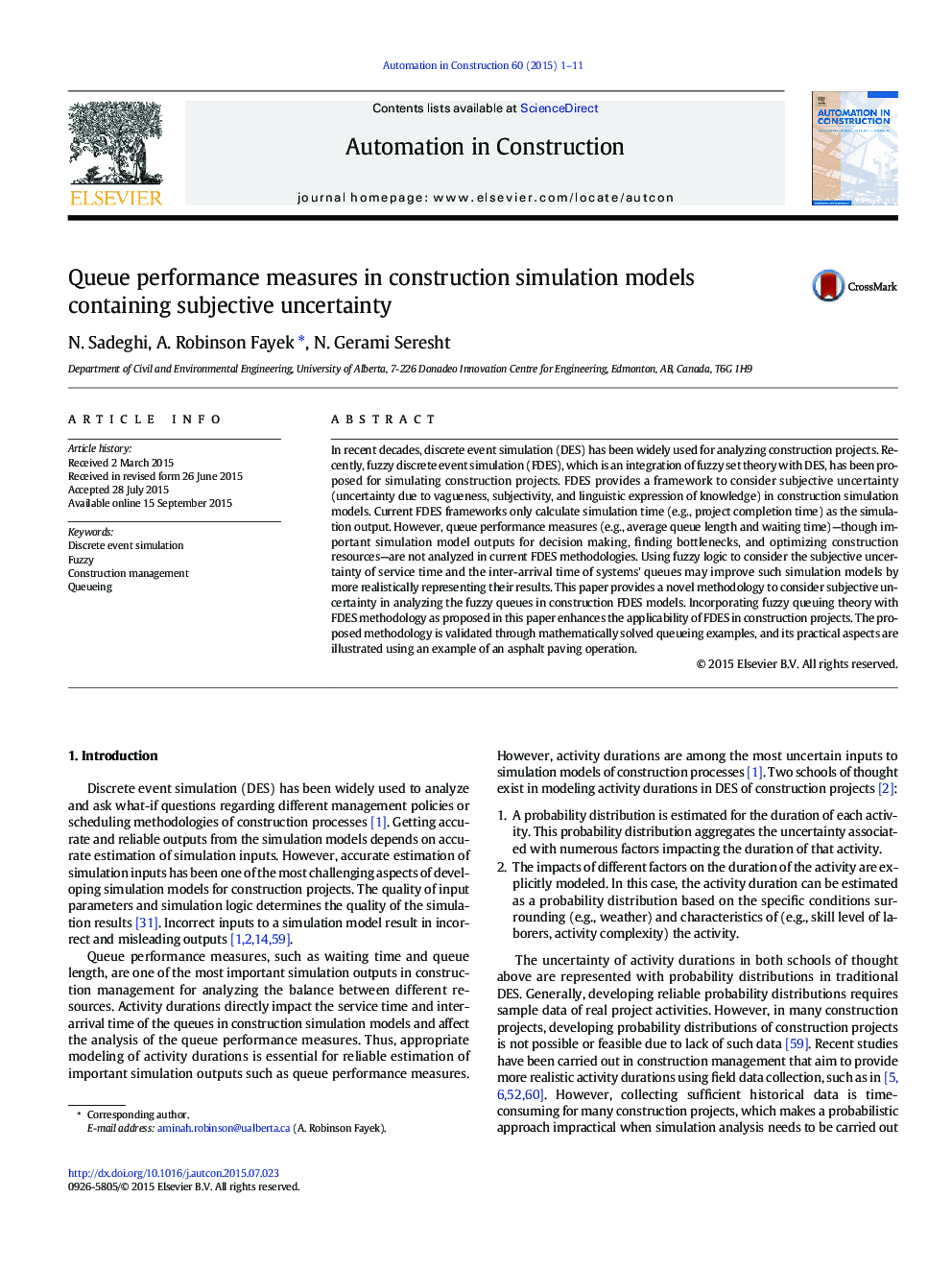| کد مقاله | کد نشریه | سال انتشار | مقاله انگلیسی | نسخه تمام متن |
|---|---|---|---|---|
| 246277 | 502358 | 2015 | 11 صفحه PDF | دانلود رایگان |
• Fuzzy numbers represent subjective uncertainty resulting from linguistic expression.
• Fuzzy discrete event simulation (FDES) frameworks process fuzzy numbers.
• FDES extension calculates performance measures of subjectively uncertain queues.
• Approach assesses performance measures of mathematically complex queues.
• Case study shows methodology enhances FDES applicability to construction projects.
In recent decades, discrete event simulation (DES) has been widely used for analyzing construction projects. Recently, fuzzy discrete event simulation (FDES), which is an integration of fuzzy set theory with DES, has been proposed for simulating construction projects. FDES provides a framework to consider subjective uncertainty (uncertainty due to vagueness, subjectivity, and linguistic expression of knowledge) in construction simulation models. Current FDES frameworks only calculate simulation time (e.g., project completion time) as the simulation output. However, queue performance measures (e.g., average queue length and waiting time)—though important simulation model outputs for decision making, finding bottlenecks, and optimizing construction resources—are not analyzed in current FDES methodologies. Using fuzzy logic to consider the subjective uncertainty of service time and the inter-arrival time of systems' queues may improve such simulation models by more realistically representing their results. This paper provides a novel methodology to consider subjective uncertainty in analyzing the fuzzy queues in construction FDES models. Incorporating fuzzy queuing theory with FDES methodology as proposed in this paper enhances the applicability of FDES in construction projects. The proposed methodology is validated through mathematically solved queueing examples, and its practical aspects are illustrated using an example of an asphalt paving operation.
Journal: Automation in Construction - Volume 60, December 2015, Pages 1–11
